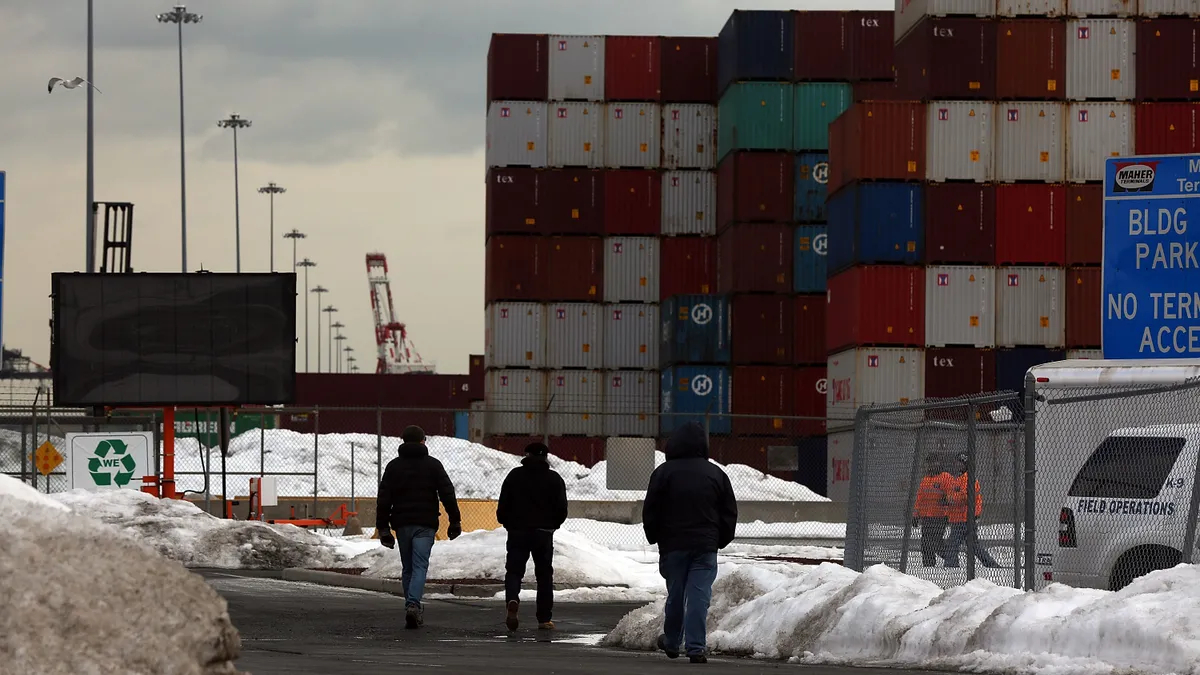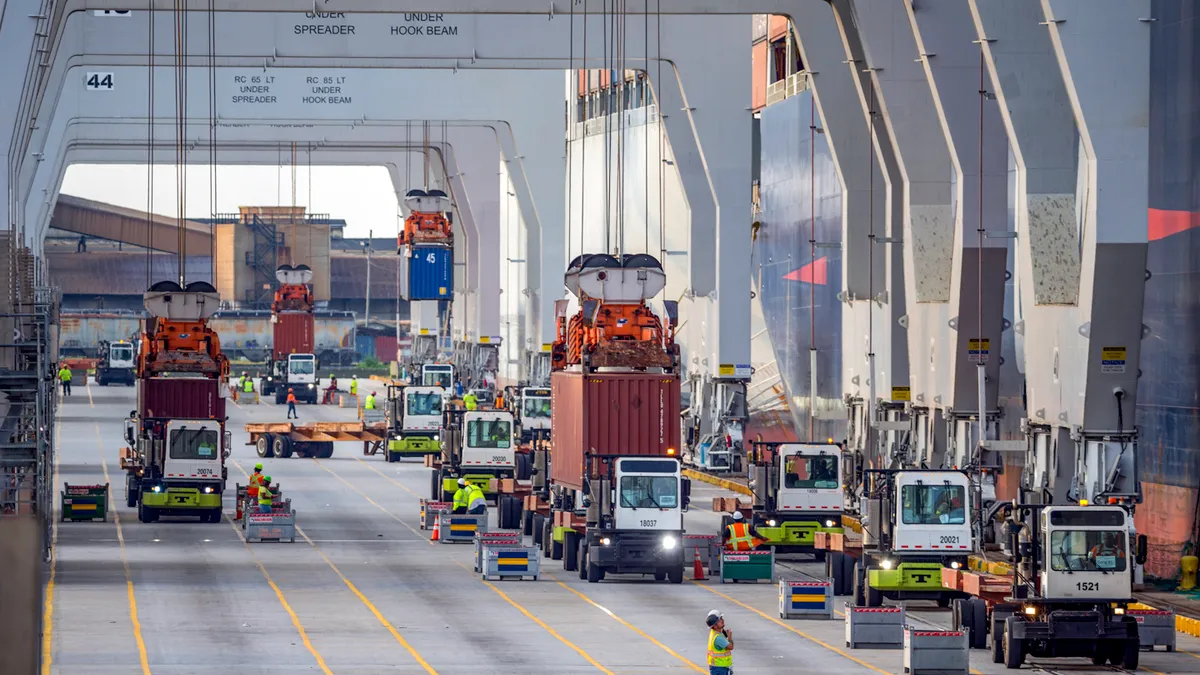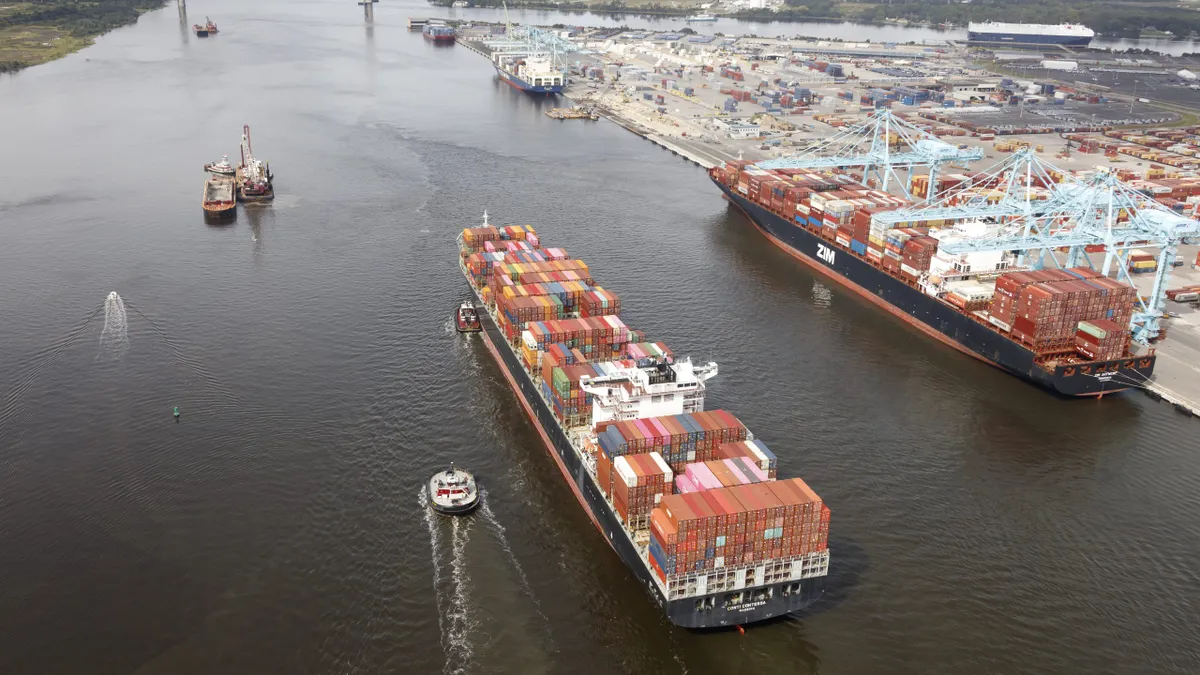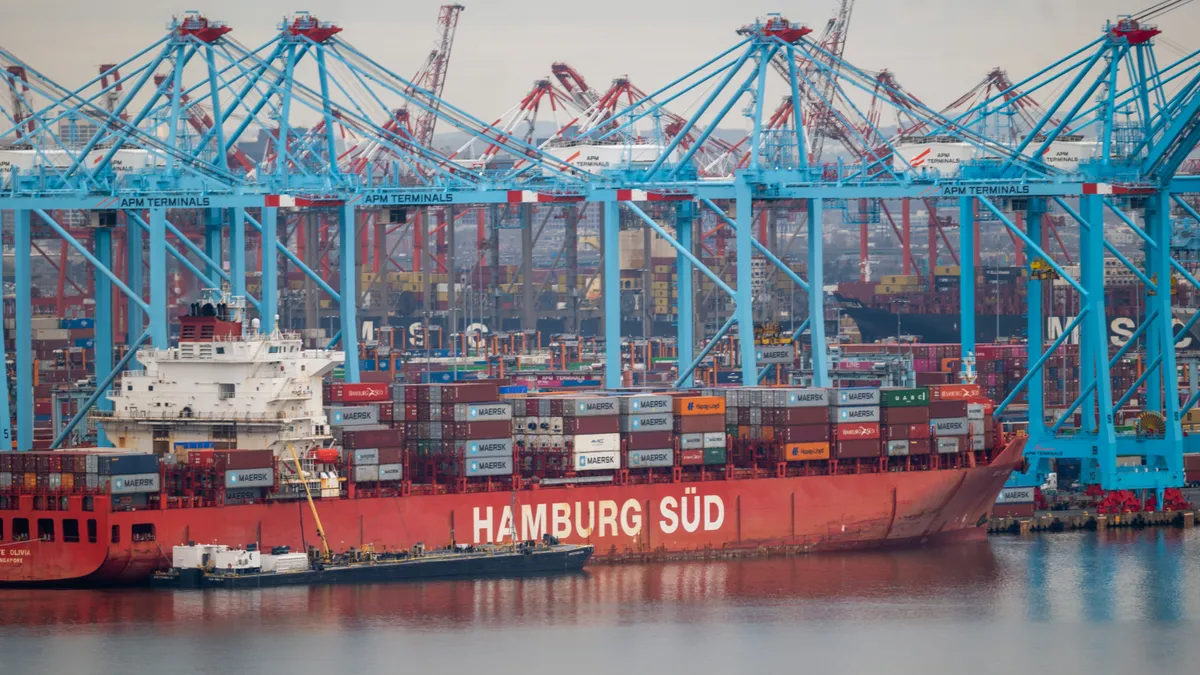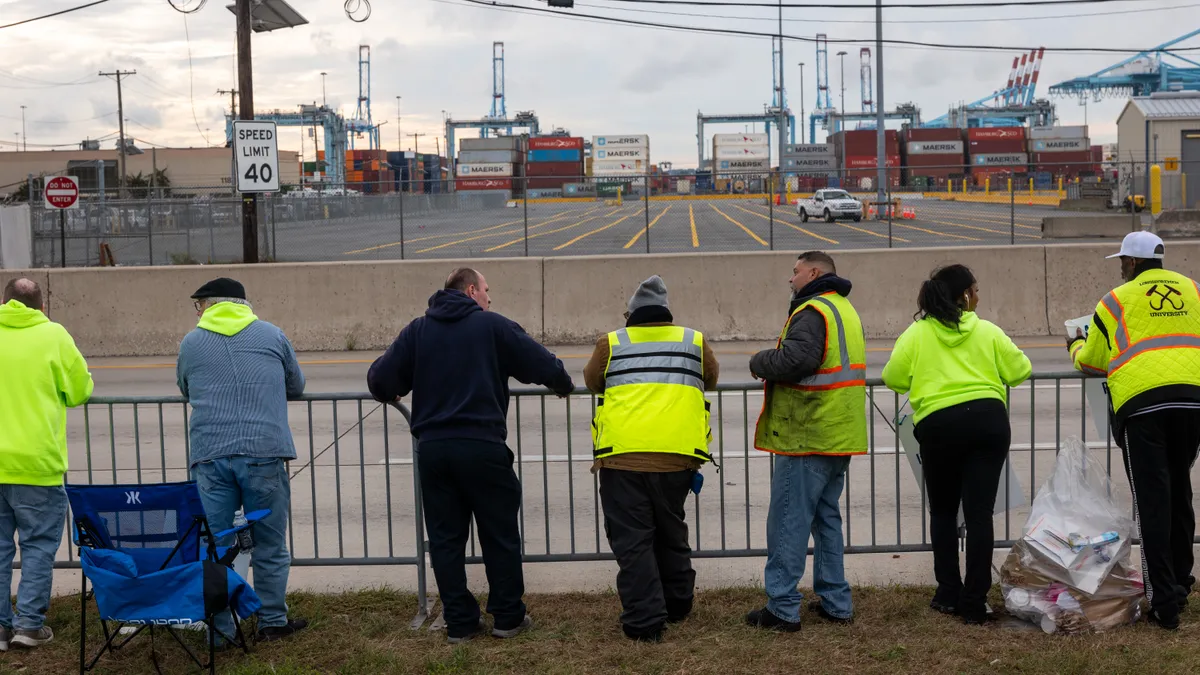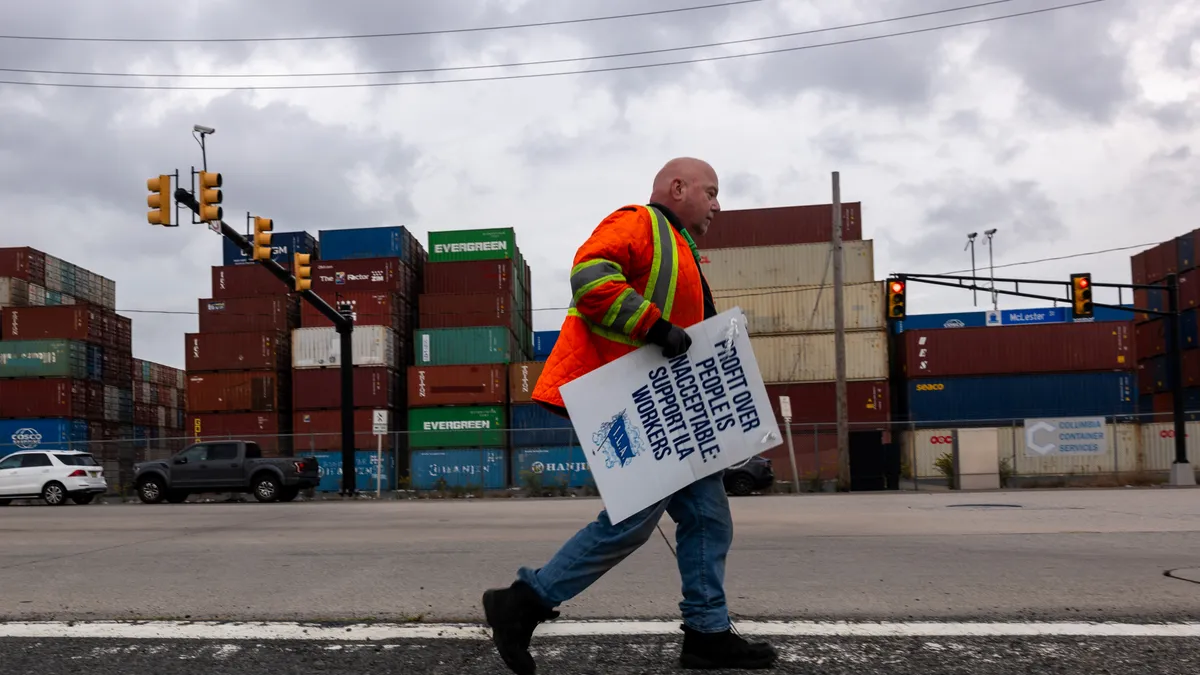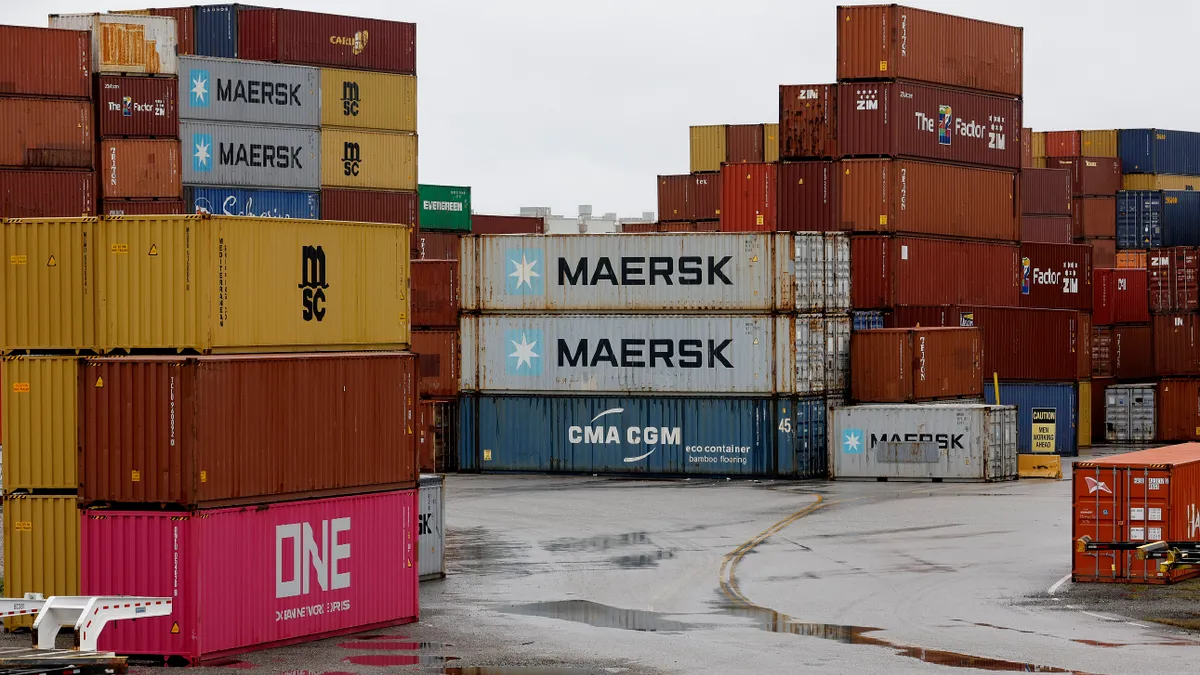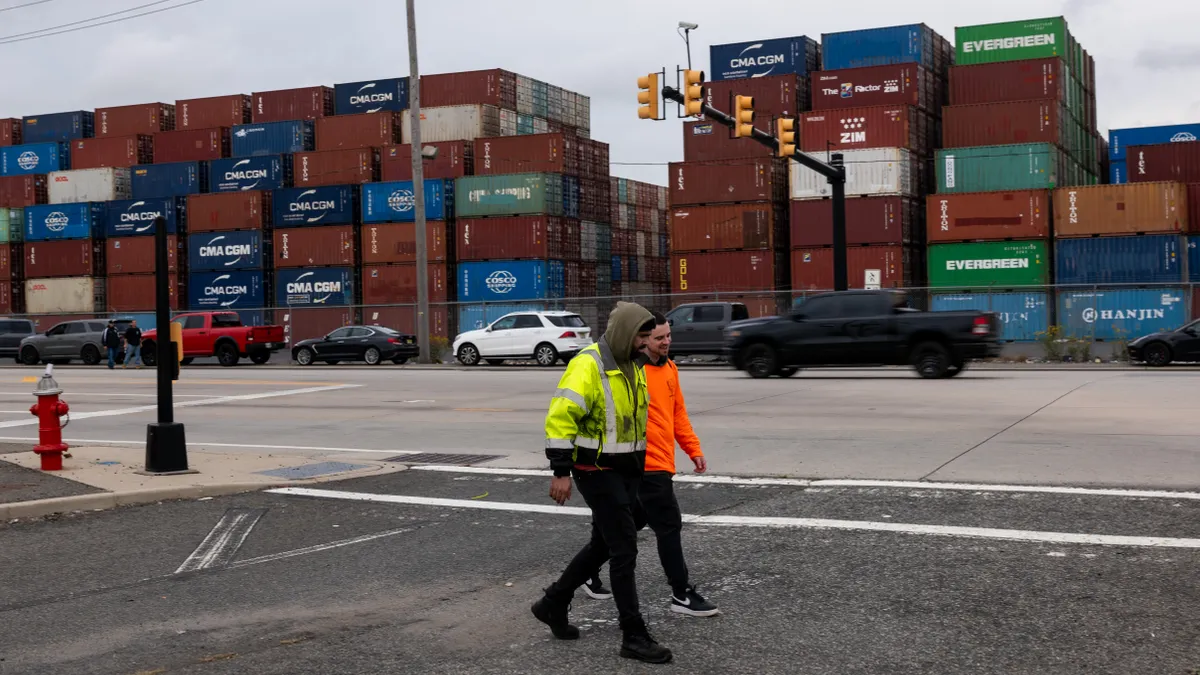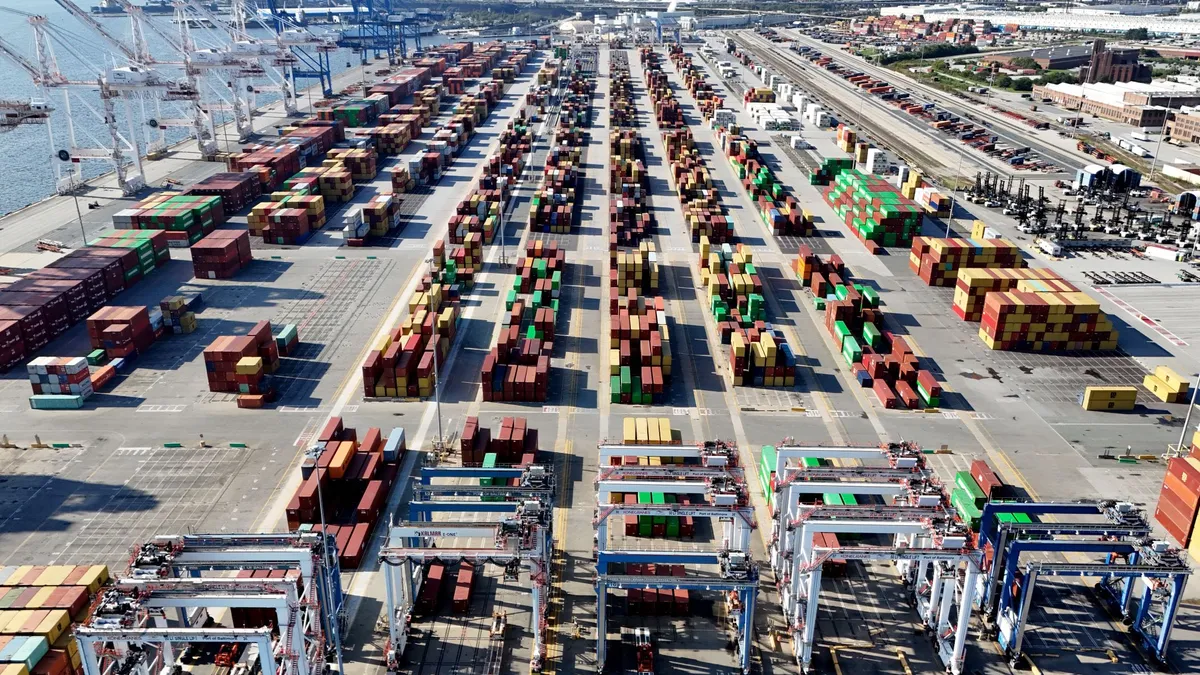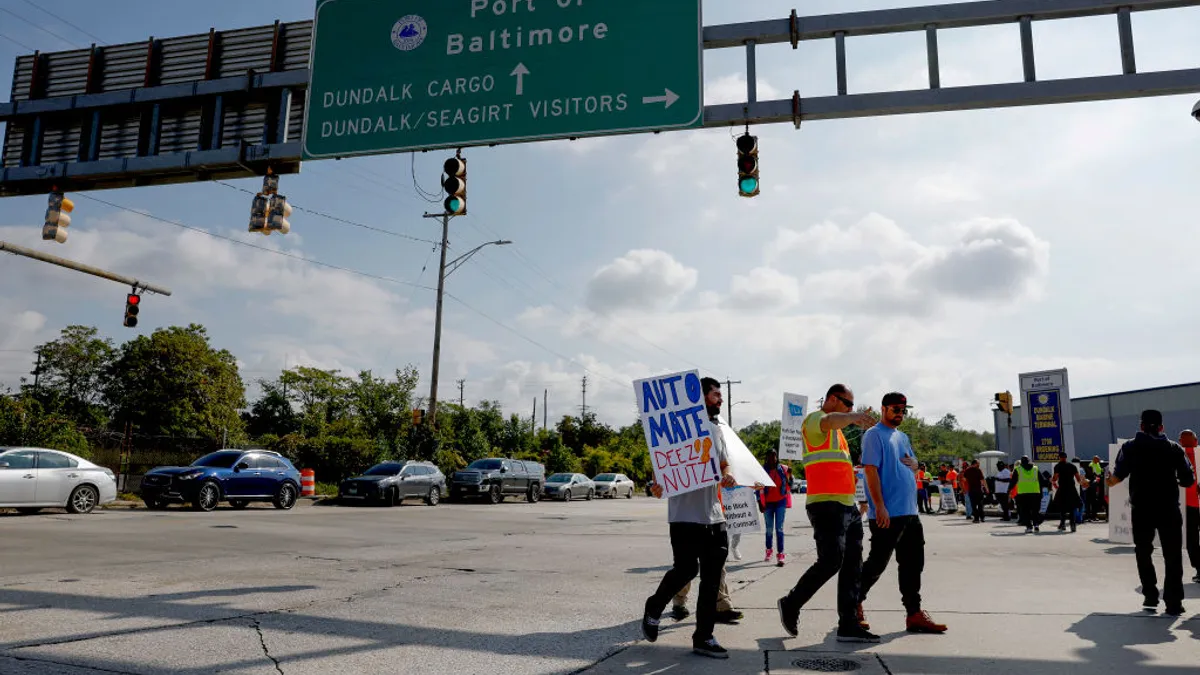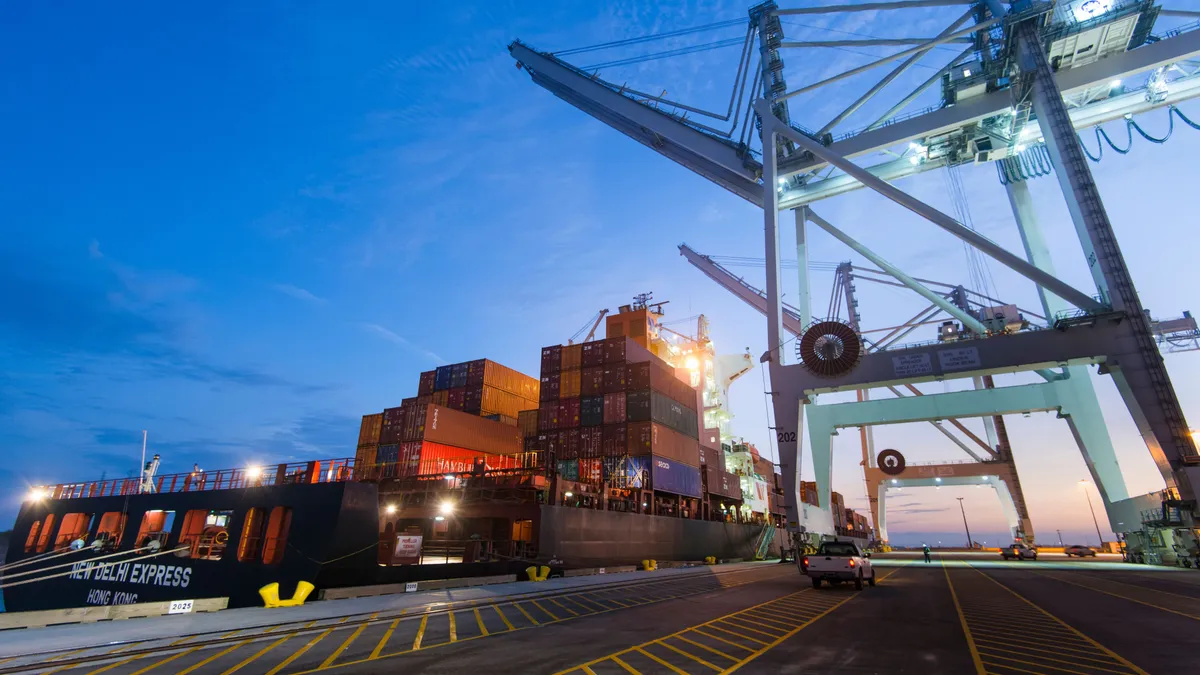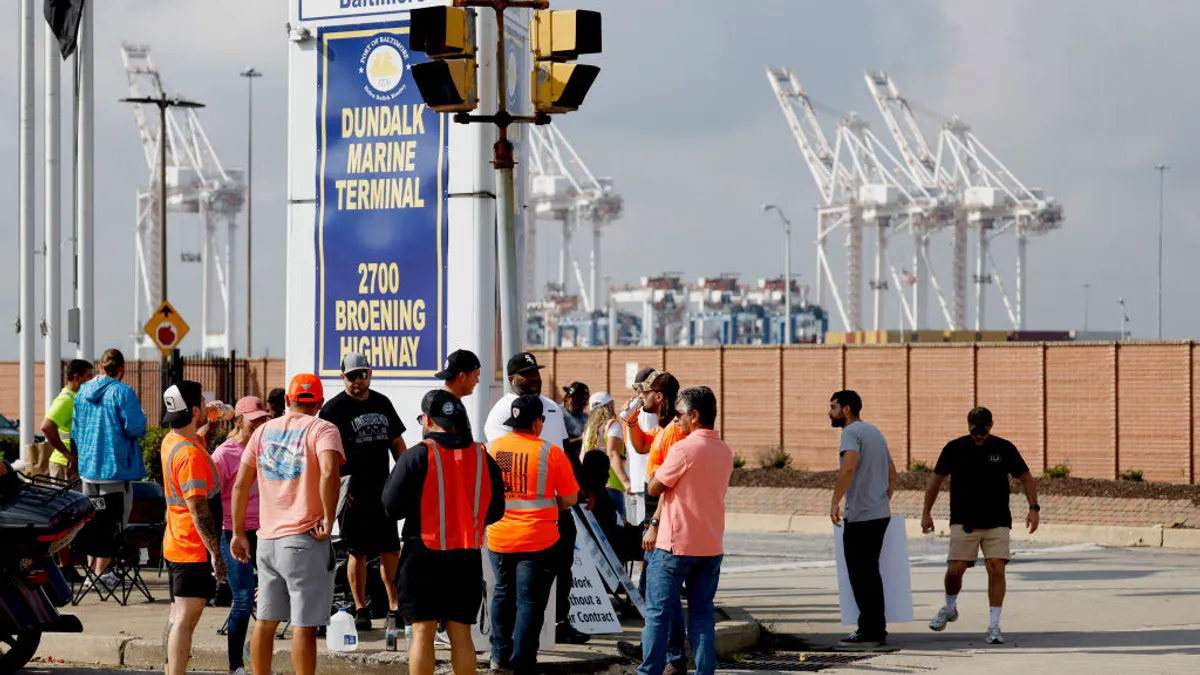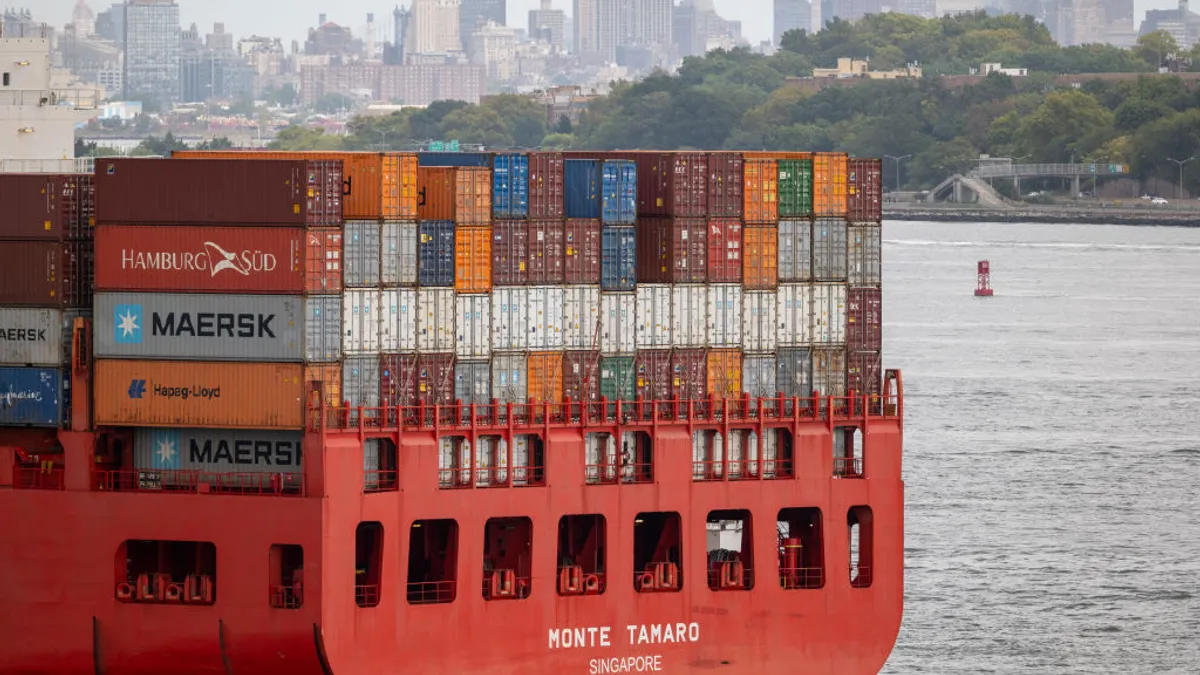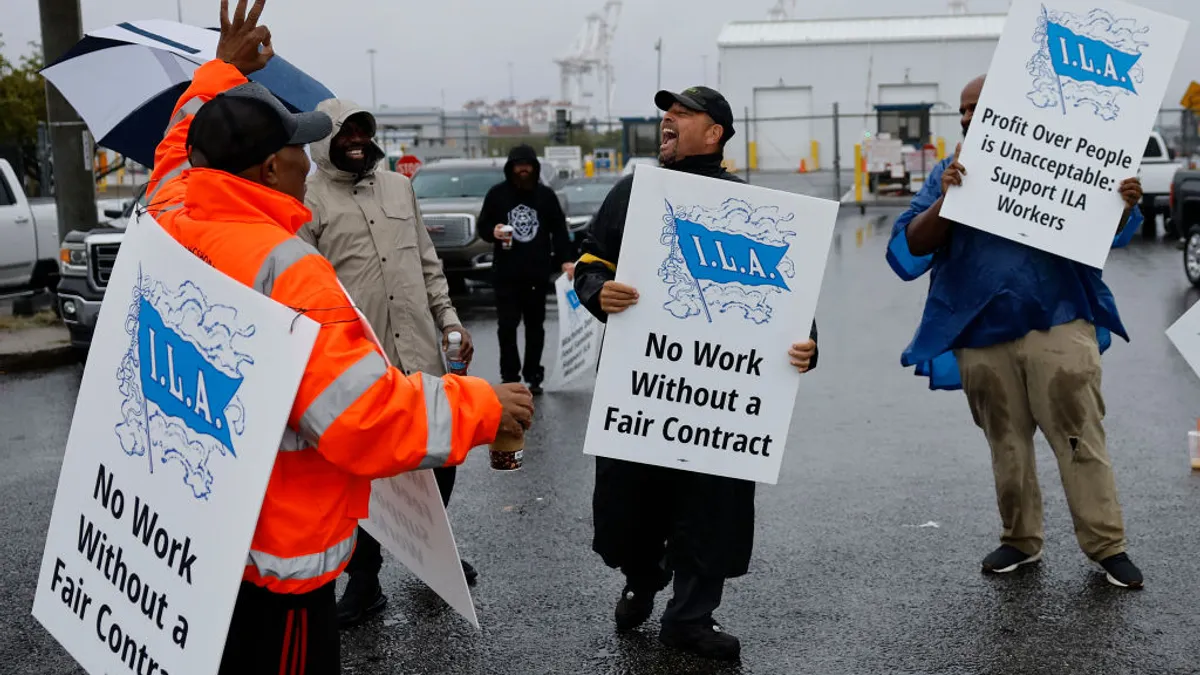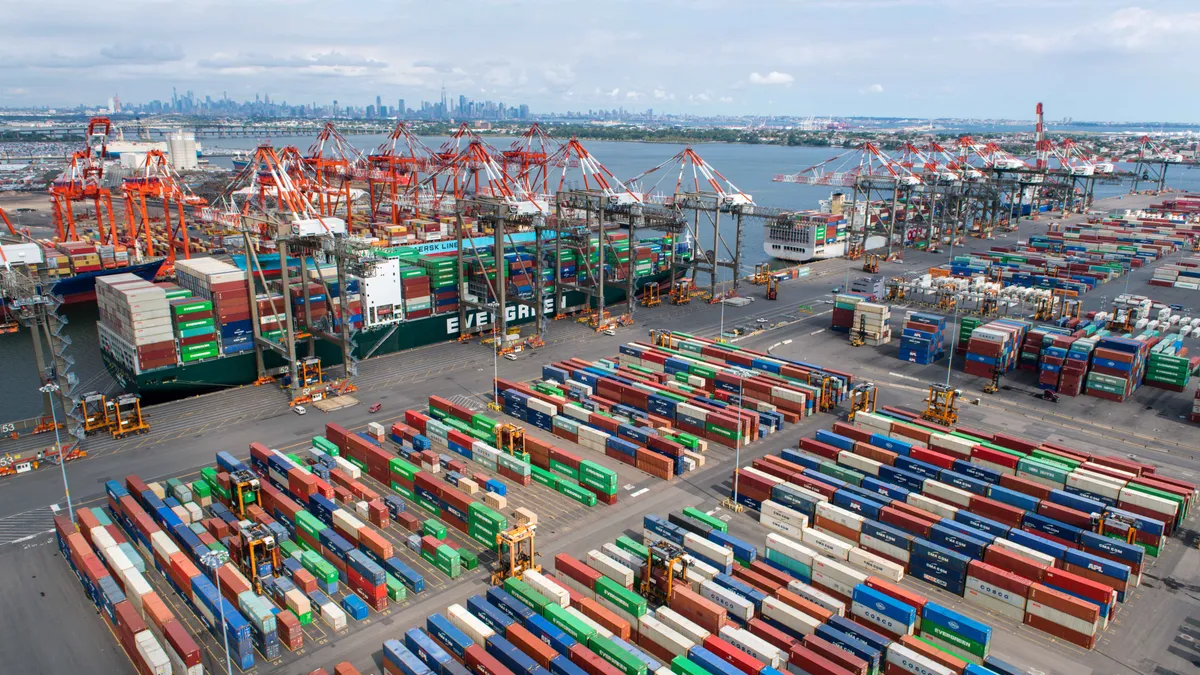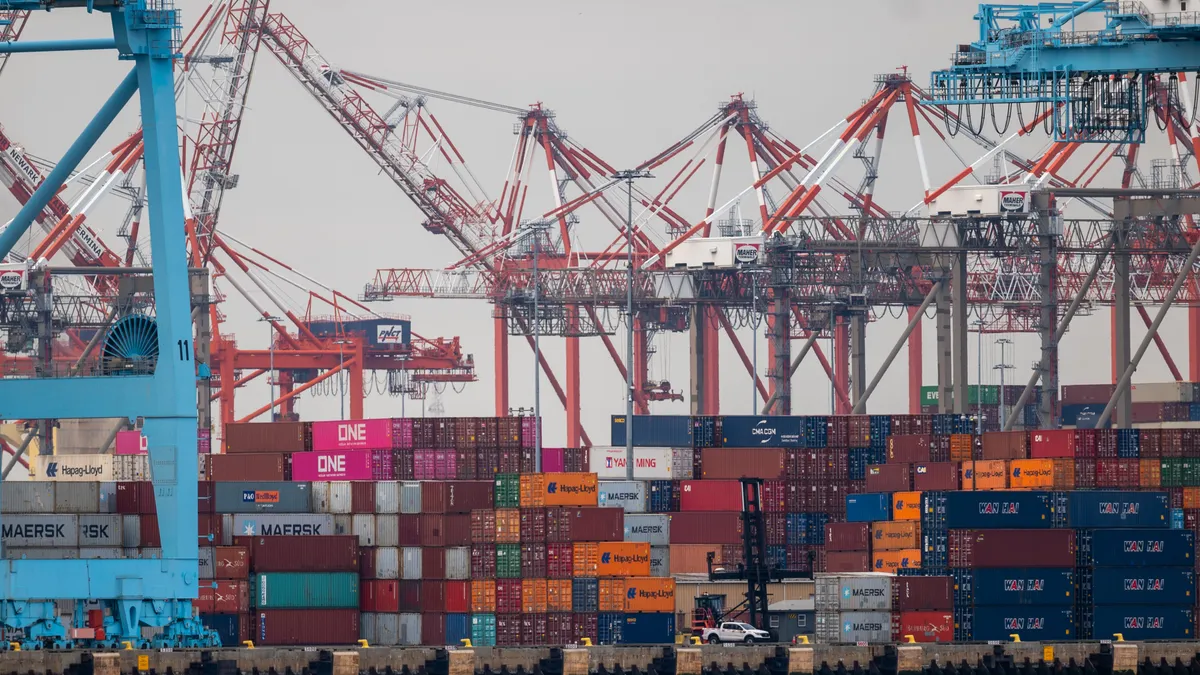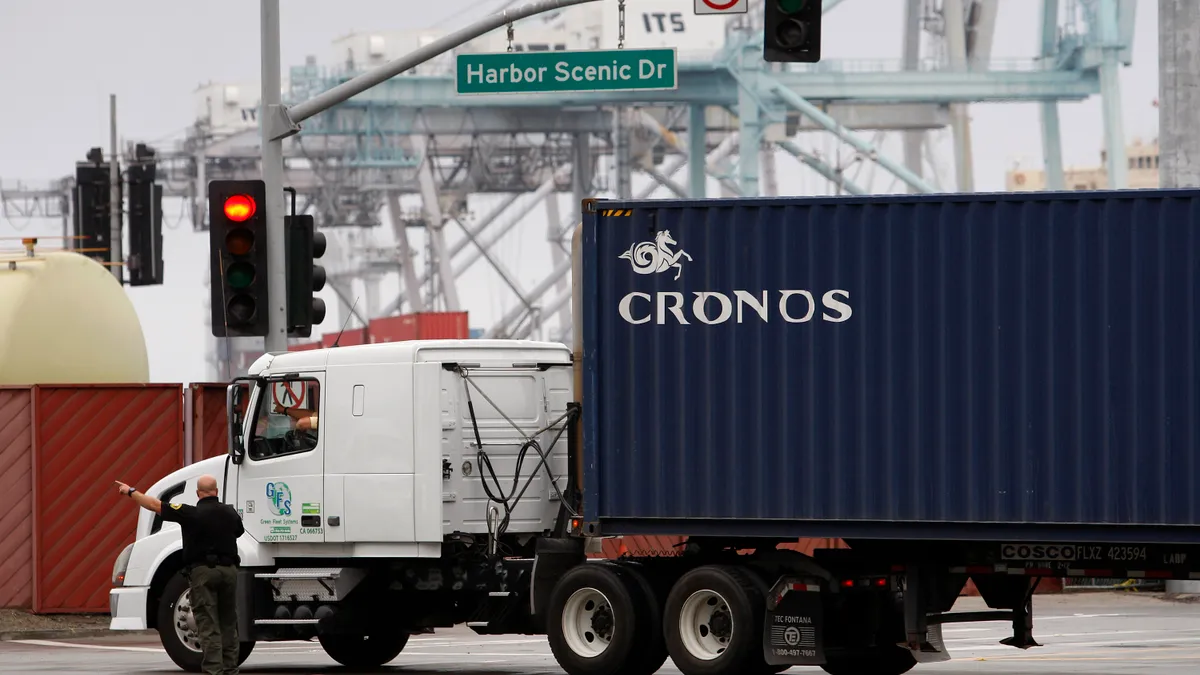With less than two weeks before a threatened East Coast and Gulf Coast strike, stakeholders are raising the alarm, saying such a shutdown would be devastating for supply chains.
The warnings — made via letters and media briefings alike — come as the International Longshoremen's Association has threatened a coastwide strike on Oct. 1 if a new contract is not in place. In them, business executives note a prolonged stoppage at any of the nation's ports could ripple into broader impacts to the economy.
“One day is too long of a shutdown,” George Goldman, president and CEO of the North America division at CMA CGM said during a Wednesday briefing at the Port of Los Angeles. “The reality is that we're in a fluid supply chain process. The moment you close the door, things begin to back up."
Shipping lines like CMA CGM are among the dozens of companies that are members of the United States Maritime Alliance, the employers' association known as USMX that is responsible for negotiating a new contract with the ILA.
“We are not, in any way, looking forward to having any shutdown on any coast," Goldman said.
Fears of a stoppage alone have already been enough to spring shippers into action.
On Tuesday, over 100 trade groups sent a letter to President Joe Biden, urging the administration to help both parties get back to the table and quickly “negotiate a new deal or agree to continue negotiations while keeping the ports open and cargo flowing.”
"A strike at this point in time would have a devastating impact on the economy, especially as inflation is on the downward trend," the letter said.
Furthermore, companies have been moving cargo into the U.S. early, as well as diverting it to other locations. As a result, West Coast ports like the Port of Long Beach and the Port of Los Angeles are seeing a surge in cargo volumes.
Ahead of a potential labor strike or shutdown on the opposite side of the country, West Coast ports have affirmed to shippers that they have the capacity to accommodate additional cargo.
COO Noel Hacegaba at the Port of Long Beach said marine terminal operators are prepared to flex their gate hours as needed, during a press conference last week. Meanwhile, Port of Los Angeles Executive Director Gene Seroka said port data allows them to see “around corners and up hills like we've never seen before.”
“We expect to be over 900,000 TEUs again in the month of September, we've shown that we can handle this cargo,” Seroka added.
Edwin Lopez contributed to this story.








